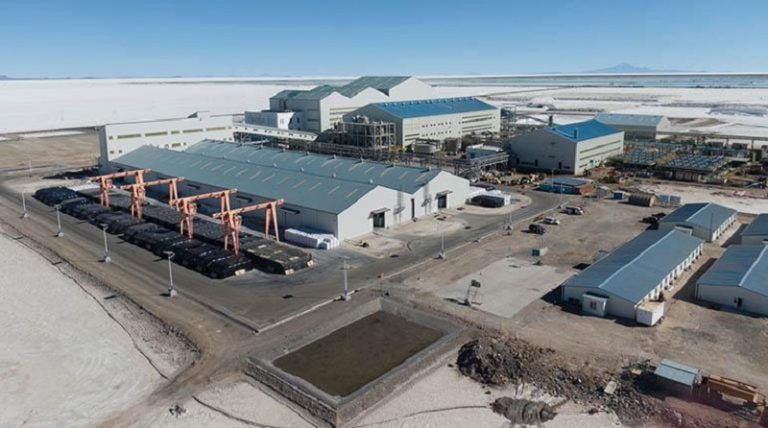Calderón assured that the launch last Friday in Potosí of the first Bolivian Industrial Plant of this compound and the execution of other projects in salt flats in this department and Oruro point in that direction.
“All of this basically has the objective of being able to position Bolivia on the map of the main producers of lithium carbonate,” she said, interviewed by the state channel Bolivia TV.
The owner insisted that the compound is now “the star product” of Bolivia and is in line with the policy of industrialization with import substitution promoted by the Government of President Luis Arce.
The new complex is located in Colcha K, town of Llipi, in Potosí. It required an investment of close to 767 million bolivianos (almost 110 million dollars), and in three stages it will have the capacity to produce up to 15 thousand tons per year.
Calderón explained that this factory will operate with traditional technology, however, he clarified that four other plants are also being executed in the Potosí and Oruro salt flats that will synthesize battery-grade lithium carbonate, but through the Direct Lithium Extraction (EDL) method to reach up to 100 thousand tons.
She stressed that, although the main product YLB works on is lithium carbonate, attention is also paid to obtaining potassium chloride, a compound in high demand in the fertilizer market.
She added that to date the production volume of this compound of importance for agriculture is 70 thousand tons and it is expected to reach 90 thousand before the end of the year.
Lithium carbonate is the fundamental raw material for the manufacture of batteries, and in the midst of an energy transition towards electromobility, the demand for this and other evaporite derivatives maintains a high price in the international market.
Calderón maintained that, as part of government policy, hundreds of industrialization plants for natural resources and other raw materials will be built in Bolivia, which will generate a great demand for professionals specialized in engineering and other areas necessary in the operation of these factories, he concluded.
Born in Potosí, Calderón is an electronic engineer who graduated from the Tomás Frías University with outstanding results, for which she benefitted from the state program 100 Scholarships for Scientific and Technological Sovereignty and earned a master’s degree in the area of industrial process automation systems at the University of Grenoble Alpes, France.
ef/jha/jpm










